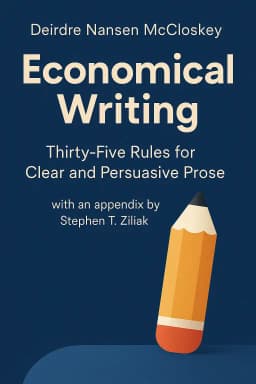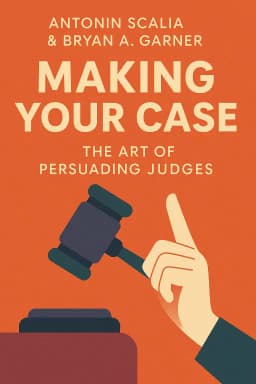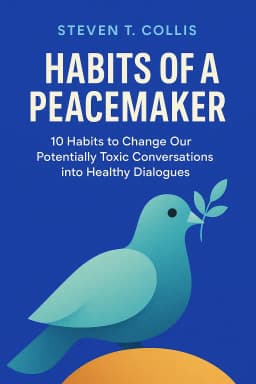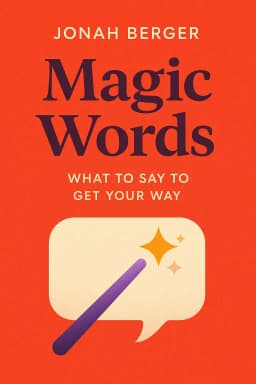
The Paradox of Helping
How to Offer, Give, and Receive Help
Golden Hook & Introduction
SECTION
Michelle: Alright Mark, I'm going to say the title of a book, and I want your gut reaction. Helping: How to Offer, Give, and Receive Help. Mark: Sounds like the most passive-aggressive book ever written. Like something you'd gift to your most incompetent coworker with a little winky-face emoji. "Just thought you'd find this... helpful!" Michelle: That is a perfect roast. And it's funny you say that, because the author, Edgar Schein, was a legendary professor at MIT's Sloan School of Management. He wasn't some self-help guru; he was a serious social psychologist who spent decades consulting for huge, powerful organizations. Mark: Okay, now I'm intrigued. So a genius from MIT wrote a whole book because helping is... hard? That seems wild. It feels like breathing. You just do it. Michelle: That’s what we think! But Schein’s whole point is that we’re mostly terrible at it. He saw brilliant executives and engineers, people at the top of their game, completely fail at the simple act of helping each other. And it drove him crazy. He realized that helping isn't just an action; it's a delicate, often broken, social contract. Mark: A broken social contract. I like that. It sounds like there's a hidden rulebook for helping that nobody ever gave us. Michelle: Exactly. And today, we're opening that rulebook.
The Paradox of Help: Why Good Intentions Go Wrong
SECTION
Michelle: The first rule Schein points out is that any helping situation is intrinsically unbalanced. The moment you ask for help, or someone offers it to you, a power dynamic is created. The person with the problem is suddenly "one-down," and the helper is "one-up." Mark: Hold on, that sounds a bit cynical. If I ask you for directions, am I really feeling "one-down"? I'm just lost. I need information. Michelle: In that small moment, yes, you are. You're admitting a lack of knowledge, and the other person has something you need. It’s a tiny status shift, but our brains are incredibly sensitive to these things. Schein argues this is why so many attempts to help, even with the best intentions, go horribly wrong. He tells this hypothetical story that perfectly illustrates the paradox. Mark: Okay, hit me with it. Michelle: Picture a sunny day at the beach. A man is struggling in the water, clearly drowning. A well-intentioned rescuer sees him, dives in, and heroically pulls him to shore. The man is saved. A happy ending, right? Mark: Of course. The rescuer is a hero. They should get a medal. Michelle: In the chaos of the rescue, the rescuer accidentally dislocates the drowning man's shoulder. And what happens next? The man who was saved turns around and sues his rescuer for the injury. Mark: Come on. That can't be real. That’s insane. You save someone's life and they sue you? Michelle: It highlights the core paradox. The act of helping, even when life-saving, can create resentment and negative consequences. The person who was helped, once they're safe and sound, might feel humiliated by their own helplessness. The injury becomes a focal point for that resentment. They were put in a position of total dependency, and now they're reasserting control the only way they know how: through a lawsuit. Mark: Wow. Okay, that's a dark way to look at the world, but I can kind of see the logic. It’s not about the shoulder, it’s about the humiliation of needing to be saved. Michelle: Precisely. And it happens in the corporate world all the time, just with lower stakes. Schein describes a classic business case. A big manufacturing company is struggling with low morale and productivity. They hire an expensive consulting firm. The consultants spend months doing interviews, analyzing data, and they produce this brilliant, comprehensive report with a clear path forward. Mark: And the company implements it and everything gets better. Michelle: Nope. The management team thanks them politely, takes the report, and files it away in a drawer, never to be seen again. Nothing changes. The company continues its downward spiral. Mark: Why would they do that? They paid for the help! Michelle: Because accepting the report meant admitting they, the management, were the problem. It would have been a massive loss of face. They were in the "one-down" position, and their egos couldn't handle it. It was easier to ignore the help and let the company suffer than to accept the diagnosis that they were the ones who needed to change. Mark: That is so human. It’s like every time I try to give a friend advice about their terrible relationship. They ask for my opinion, I give it to them, and then they get defensive and go right back to doing the same thing. I'm the consultant, and my advice is going straight into the filing cabinet. Michelle: You are the consultant! And your friend feels "one-down" for having a problem they can't solve. By giving them advice, you're unintentionally reinforcing their feeling of inadequacy. So they resist. It’s a natural defense mechanism. Mark: So the very act of trying to help is what makes them not want the help. That's a real catch-22. What are we supposed to do, then? Just watch people drown or let companies fail? Michelle: This is where Schein's work gets really practical. He says the problem isn't the intention to help; it's the role we automatically jump into when we try.
The Three Faces of the Helper: Expert, Doctor, or Process Consultant?
SECTION
Michelle: Schein identifies three fundamental roles a helper can play. And the tragedy is, we almost always pick one of the two less effective ones first. Mark: Okay, I'm ready to feel personally attacked. What are they? Michelle: The first is the Expert. This is when you have a piece of information or a skill the other person needs. They ask, "What time is it?" You tell them. Simple transaction. You're a human Google. This works, but only if the person has correctly diagnosed their own problem. Mark: Right. That seems straightforward enough. What's the second one? Michelle: The second role is the Doctor. This is the one most of us are guilty of. The Doctor doesn't just provide information; they diagnose the problem and prescribe a solution. Your friend complains about being tired, and you immediately say, "You need to drink less coffee and go to bed earlier." You've diagnosed and prescribed. Mark: Oh man, I am 100% the Doctor. My wife asks me where the keys are, and I'm already explaining a new organizational system for the entire house, complete with labeled bins and a shared digital calendar. Michelle: Exactly! And you're doing it with the best intentions. But the Doctor role is incredibly risky because it assumes you know more about the person's situation than they do. Schein tells this perfect little story about his son-in-law. He was trying to learn how to use a new phone and asked for help. Mark: A classic scenario. I feel for the son-in-law already. Michelle: Schein just wanted to know how to look up a phone number in the address book. But his son-in-law, playing the Doctor, assumed he wanted to make a call. So he grabs the phone and says, "Okay, you hit menu, scroll to addresses, pick the name, and hit the green button to call." He does it all in one smooth motion. Mark: And Schein is just left in the dust. Michelle: Completely. The call is made, but Schein never learned the first step of how to even get to the address book. The son-in-law prescribed a solution for a problem Schein didn't have. The help was totally ineffective because the diagnosis was wrong. Mark: I have done that exact thing a thousand times. You get so excited to show off your knowledge that you steamroll the person you're trying to help. So if being an Expert is limited and being a Doctor is dangerous, what's left? Michelle: This is the heart of the book. It's the third role: the Process Consultant. Mark: That sounds a bit vague and corporate. What does a 'Process Consultant' even do? Michelle: It's simpler than it sounds. The Process Consultant's primary job isn't to solve the problem. It's to help the other person solve their own problem. They focus entirely on the communication process itself. They create a safe environment, build trust, and help the other person see their situation more clearly. They don't give answers; they ask better questions. Mark: So they're less of a surgeon and more of a therapist. Michelle: That's a great way to put it. A surgeon cuts you open and fixes you. A therapist helps you understand yourself so you can make your own changes. The Process Consultant knows that the client is the only one who truly understands the full context of their problem. The helper's job is to help them access that knowledge. Mark: Okay, I get the theory. But it still feels a bit abstract. How does one actually do that? It seems like it would require a lot of patience. Michelle: It does. But it's also a specific, learnable skill. And Schein gives it a name that I think is just brilliant. He calls it 'Humble Inquiry.'
The Art of Humble Inquiry: The One Skill That Changes Everything
SECTION
Michelle: Humble Inquiry is the superpower the book offers. It's the practical tool for being a Process Consultant. And the definition is beautifully simple: it's the art of asking questions to which you genuinely do not know the answer. Mark: As opposed to what? Leading questions? The "don't you think you should..." type of questions? Michelle: Exactly. Or diagnostic questions that are really just you showing off. Think of the computer help line. They ask, "Is your cursor frozen or is the hard drive spinning?" They're using jargon the user might not understand, which just makes the user feel more stupid and more "one-down." That's not humble inquiry. Mark: Right, it's a test, not a question. Michelle: Humble Inquiry, on the other hand, is all about building the other person's status up. It's about making them the expert. The best story to illustrate this is one of Schein's own experiences. He's outside his house one day, and a woman pulls up in her car, looking lost. She asks him for directions to Massachusetts Avenue. Mark: Okay, a simple Expert role situation. He just points the way. Michelle: That would be the Expert response. The Doctor might ask, "Where on Mass Ave are you going?" to give a more precise answer. But Schein, practicing what he preaches, goes into Process Consultant mode. He uses Humble Inquiry. He asks a simple, open-ended question: "Where are you ultimately trying to go?" Mark: And what did she say? Michelle: She says, "I'm trying to get to downtown Boston." Now, here's the kicker. The street they were on, the one she was already driving on, led directly to downtown Boston. Massachusetts Avenue would have been a complicated detour. Mark: Whoa. So by answering her direct question, he would have actually given her unhelpful help. Michelle: Terribly unhelpful! He would have sent her on a wild goose chase. Instead, he was able to say, "You're in luck. Just stay on this road for a few miles, and it will take you right where you want to go." The woman was incredibly grateful. He didn't just answer her question; he solved her real, underlying problem. And he only got there by asking a humble question. Mark: That's a game-changer. It reframes the whole goal. It’s not about having the answer, it's about uncovering the right question. The real problem wasn't "Where is Mass Ave?", it was "How do I get to Boston?" Michelle: And that's the magic of it. It works in every context. Think about your kid asking for help with math homework. The Doctor response is to grab the pencil and solve the problem for them. The Humble Inquiry response is to say, "Tell me a bit about what you've tried so far." You might discover the problem isn't the math at all. Maybe they're having a problem with a friend at school and the homework is just a pretext to start a conversation. Mark: That hits home. You jump to fix the surface problem and miss the real one entirely. But this requires you to slow down and not just react with your first, smartest-sounding thought. Michelle: It requires you to be genuinely curious. And to be okay with not being the hero with all the answers. You have to be willing to be influenced yourself. It's a two-way street. Getting this wrong can be disastrous. Schein mentions a sensitivity training group where the facilitator, trying to be clever, said to the group, "Now the group is trying to castrate me." Mark: Yikes. That is... not a humble question. Michelle: Not at all. It was a confrontational diagnosis. One of the managers in the group was so offended that he pulled his company's multi-million dollar contract from the program on the spot. A single un-humble sentence destroyed the entire helping relationship. The stakes are real.
Synthesis & Takeaways
SECTION
Mark: Okay, so my brain is buzzing with all the times I've been the overeager Doctor or the unhelpful Expert. If there's one practical thing our listeners should take away from this, what is it? If a friend comes to me tomorrow with a problem, what's the first sentence out of my mouth? Michelle: The first sentence should almost always be some version of pure, humble inquiry. Something as simple as, "Wow, that sounds tough. Tell me a bit more about what's happening." Mark: No "Have you tried..."? No "Here's what you should do..."? Michelle: Absolutely not. Those can come later, maybe, if you've truly built a relationship of trust. But your first job is to listen. Your first job is to make the other person feel heard and respected. You're handing them the status of being the expert on their own life. Ultimately, Schein is telling us that true help isn't an act of authority; it's an act of partnership. You have to temporarily give up your status as the 'knower' to build a relationship where real help can actually be exchanged. Mark: So the one thing to remember is: ask, don't tell. Your first instinct should be curiosity, not a solution. That's simple, but it feels like it would take a lifetime to master. Michelle: It does. And it's interesting, some readers of the book find it a bit repetitive, but I think that's Schein's point. This is a simple idea that is incredibly hard to put into practice consistently. We need to hear it again and again. Mark: I can see that. It's like a mental muscle we've never really trained. Michelle: Exactly. And we'd love to hear from our listeners as they try to train it. What's a time you tried to help and it backfired spectacularly? Or a time when a simple question made all the difference? Share your stories with us on our social channels. We can all learn from them. Mark: This is Aibrary, signing off.









